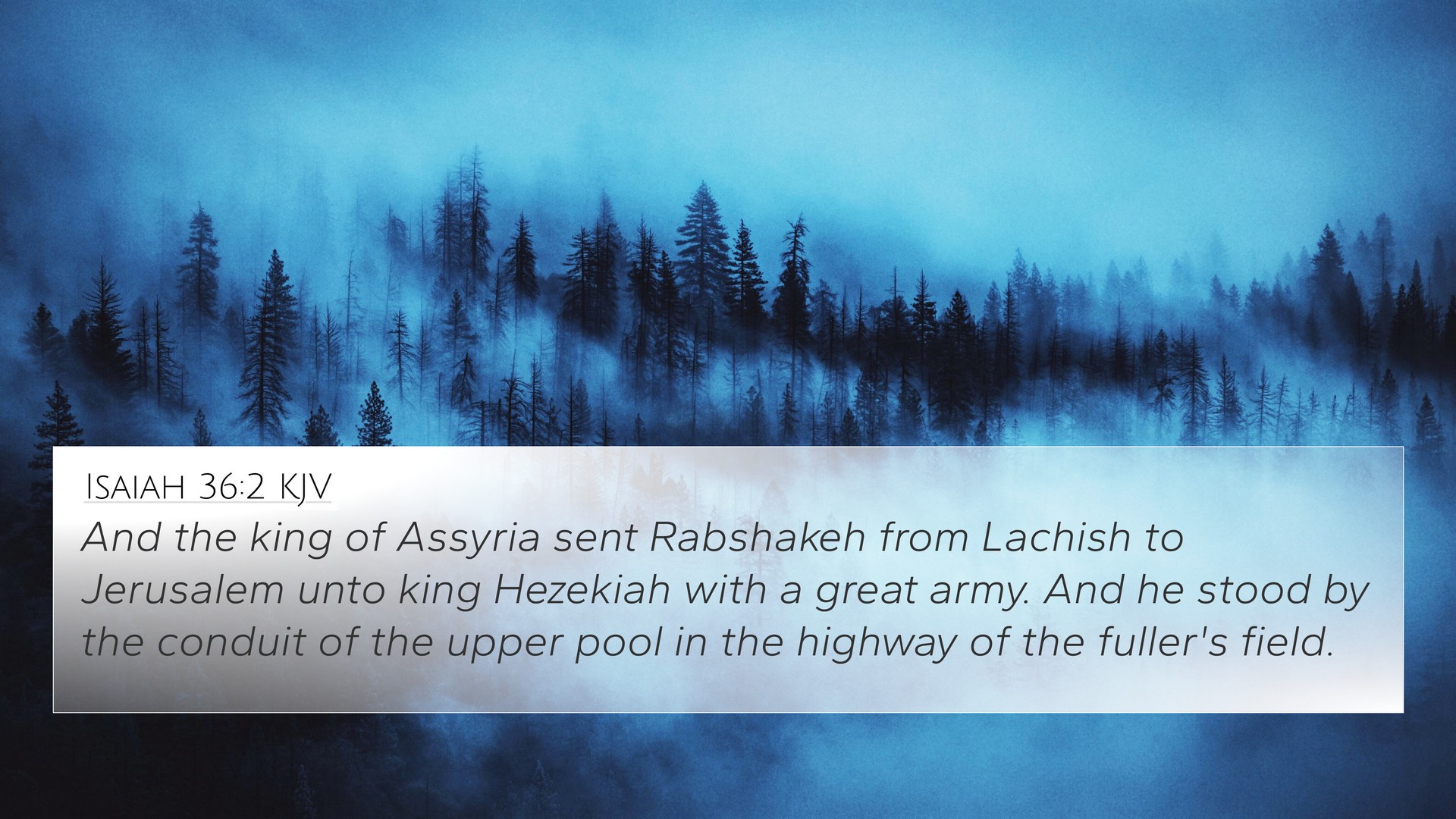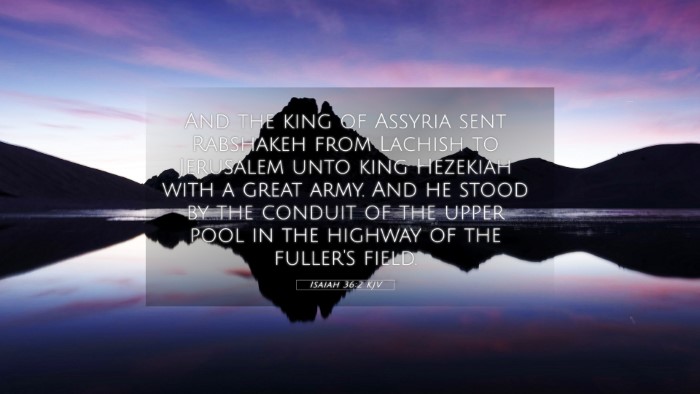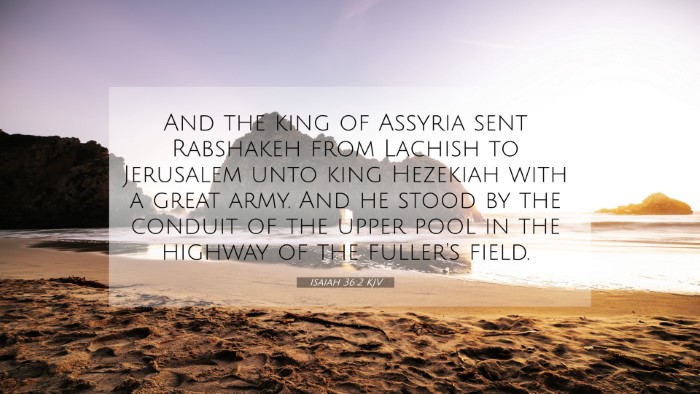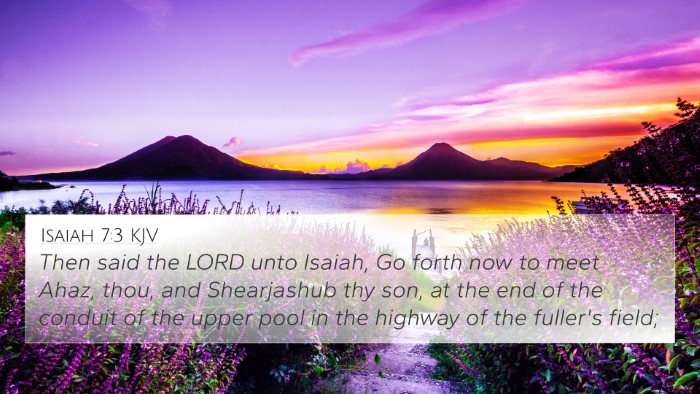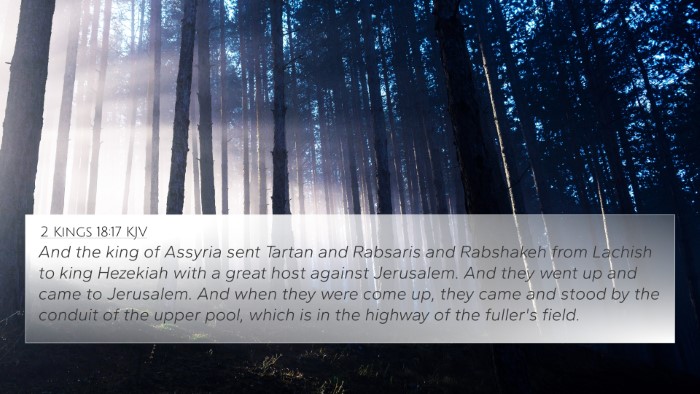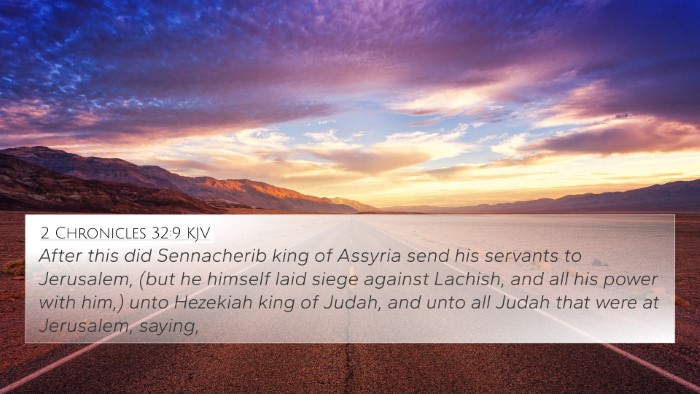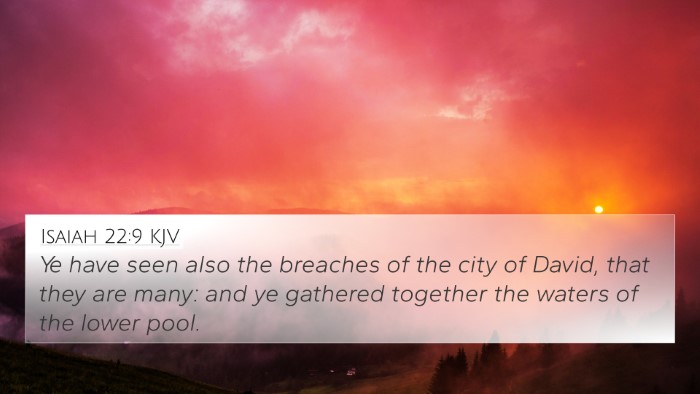Isaiah 36:2 - Summary and Interpretation
Isaiah 36:2 presents a pivotal moment during the Assyrian invasion of Judah. In this verse, we see the Assyrian king's messenger, the Tartan, sent from the king of Assyria to confront King Hezekiah. This moment not only serves as a historical account but also as a profound lesson on faith and reliance on God amidst dire circumstances.
Contextual Background
This event took place during King Hezekiah's reign, when Judah faced impending doom from the Assyrian Empire. The messenger's role is significant as he represents not just a military threat but an ideological one—challenging the very faith and trust that Judah placed in God.
Thematic Analysis
Key Themes:
- Faith in Adversity: Hezekiah's reliance on God is underscored.
- The Power of Words: The messenger's declarations challenge the people’s faith.
- Divine Sovereignty: God's control over nations and events is highlighted.
Commentary Insights
Matthew Henry's Commentary:
Henry emphasizes the audacity of the Assyrian envoy, who comes not only with military might but with blasphemous words against the God of Israel. He focuses on the psychological warfare employed by the Assyrians, seeking to instill fear and doubt among the people of Judah.
Albert Barnes' Notes:
Barnes elucidates the importance of this event in the grand narrative of Israel's history. He remarks that the messenger's presence signifies a direct challenge to God’s authority, reflecting the taunts that often accompany oppressive regimes.
Adam Clarke's Commentary:
Clarke points out the sociopolitical ramifications of this moment, illustrating that it was not just a physical threat but also a spiritual one. The rhetoric used by the Assyrian messenger was aimed at destabilizing Hezekiah’s reign and the faith of the people.
Cross-References
Isaiah 36:2 has several related passages that enhance our understanding of this situation and its implications:
- 2 Kings 18:17-37: Provides details about the Assyrian threat and the confrontation with Hezekiah.
- Isaiah 7:1-9: Assyrian invasions and the call to faith during times of fear.
- Isaiah 37:6-7: God's assurance through Isaiah regarding the fate of the Assyrians.
- Psalms 46:1: Encouragement of God's protection as a refuge in troubling times.
- Proverbs 21:30: No wisdom can prevail against the Lord, emphasizing divine supremacy.
- Isaiah 10:12: The destruction God ordains against the Assyrians, revealing His ultimate control.
- Isaiah 8:9-10: A warning against the nations plotting against God's people.
Practical Applications
In the face of challenges similar to those faced by Hezekiah, believers today can learn to:
- Trust in God’s power and presence during crises.
- Recognize the importance of faith as a shield against fear.
- Engage in prayer as a primary response to adversity.
Conclusion
Isaiah 36:2 serves as a reminder of the realities of spiritual warfare and the importance of steadfast faith. By cross-referencing various Biblical texts, believers can find comfort and assurance that, despite overwhelming odds, God remains in command.
